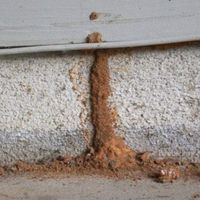What To Do With Rotten Eggs
What to do with rotten eggs. Eggs are a consumable product that can spoil or be stale over time. You can find out how to distinguish between bad eggs and not-so-bad eggs by reading this article!
Suppose you fall into the category of someone who has already eaten some spoiled eggs accidentally.
In that case, it’s probably in your best interest to consider removing them from your home as soon as possible for health and safety reasons.
We recommend removing them as quickly as possible if you have young children around because rotten food is generally less safe for consumption.
What To Do With Rotten Eggs
Here are some things you can do with the rotten eggs:

1. Expiry Check
As with other food products, eggs are stamped with an expiration date.
This is often found on the carton. Checking this data ensures that they’re not expired and can help indicate when the eggs may have gone bad or stopped being edible altogether.
There could be two different types of stamps on egg cartons depending on where you are in the country: a Sell by stamp indicates how long a store must keep them on shelves.
How long before you might start to notice their taste losing freshness; conversely, an Expiration stamp indicates that once this date has passed, you shouldn’t eat them anymore.
2. Smell Test
The sniff test is a simple and fast way to check for the freshness of your eggs. As said earlier, spoiled eggs have an unusual odor, which you can detect with your nose even from a distance.
If you have conducted the sniff test and still detected no bad smell, go ahead and try the egg! Just make sure you remember that whatever we do in life comes with risk.
So make sure you take those risks wisely by protecting yourself first against illnesses caused by eating rotten produce or products.
3. Float Test
The float test is one easy way to tell if an egg has gone bad or not. All you need to do is place the egg in a bowl of water.
If it floats, it’s old and needs to be tossed out. But if the egg sinks, then it’s still good and can be eaten at your leisure. Afloat tests can be beneficial when used in conjunction with other methods.
While room temperature is one way to determine the freshness or rottenness of an egg, there are times when this method may not provide accurate results.
For example, although a fresh egg will sink, a shell that has not been cracked is often heavier than water and therefore does not sink below the surface.
In these cases, you should use other methods to determine whether an egg is good or bad.
FAQs
What can you do with expired eggs?
The best way to tell if an egg has gone past the expiry date is by performing a float test. Fresh eggs will often sink, whereas expired ones will rise to the top of your water bath.
The next step will be to discard them if it’s clear that they’re not usable anymore. An easy way for you to do this is directly into your compost bin and feed your plants and plant life.
How can you Dispose of Eggs?
Put your eggs in a small plastic bag, and then seal the bag up securely.
Use either the eggshells or the bag, but don’t throw both away – as many people are avid recyclers and will probably be able to use one of the two items you’ve thrown out! It doesn’t matter whether or not you use a garbage disposal.
How can you tell if your Eggs are Bad?
Although eggs may be safe to cook or eat even after the expiry date stamped on the package, there are several tests you can conduct at home to help determine if they have gone bad.
If you suspect that you have an egg that is no longer viable for consumption, these simple tests will help you make food safety decisions with more confidence.
How to prevent eggs from rotting?
Eggs are such great convenience foods, and they make mealtimes just a tad bit simpler. The downside is that they expire fairly quickly in the refrigerator after you’ve got them home.
Hence, it’s best to store them in their original packaging until you’re ready to put them inside your refrigerator, where you can keep eggs for up to twenty-one days before the best-by date on the carton.
Conclusion
What to do with rotten eggs. Sometimes we may end up with expired eggs in our refrigerator or even in cartons. One of the easiest ways to tell if they have gone bad is to put them into a bowl of water.
Eggs sink when they go bad, so any egg that floats has likely had its shelf-life expire. There are alternative ways to dispose of eggs you want to throw out.
For example, you can compost them and use the nutrients for your plants or mix them into your backyard soil.
You can also throw rotten eggs down the garbage disposal as long as they don’t have cracks along their bottoms that could get clogged—extra precaution is only advised where there’s particularly cheap plumbing.
Related Post




